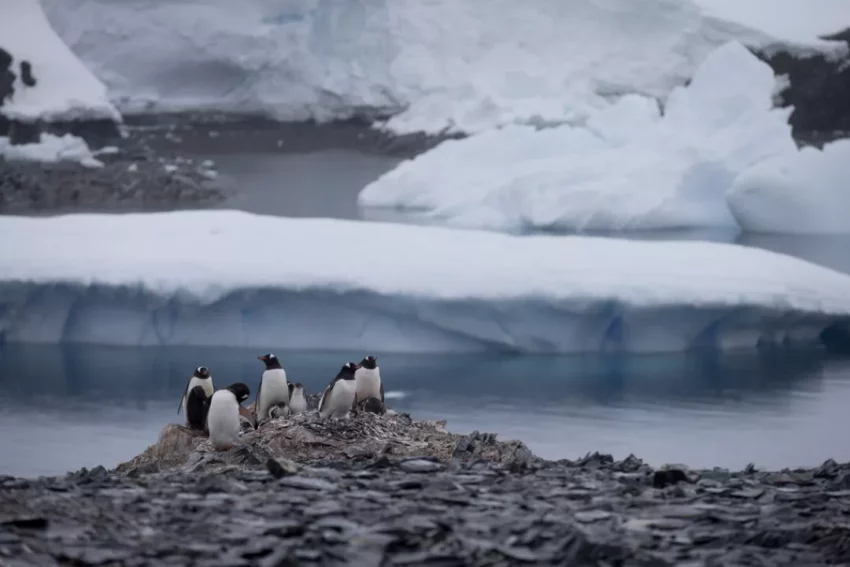- by foxnews
- 23 May 2025
From Punta Arenas to the South Pole- Exploring Fragile Ecosystem of Antarctica and its Tourism Potential : Here's What You Need to Know!
Antarctica, the Earth's southernmost frontier, has seen an unprecedented surge in tourism, with 122,000 visitors recorded in 2024. This marks a staggering increase from 44,000 visitors in 2017. With its untouched landscapes, unique wildlife, and allure as the ultimate bucket-list destination, the continent has become a focal point for adventurous travelers. However, this influx has sparked concerns about the environmental toll on one of the planet's most fragile ecosystems.
- by travelandtourworld
- 05 Jan 2025
- in travel

Antarctica, the Earth's southernmost frontier, has seen an unprecedented surge in tourism, with 122,000 visitors recorded in 2024. This marks a staggering increase from 44,000 visitors in 2017. With its untouched landscapes, unique wildlife, and allure as the ultimate bucket-list destination, the continent has become a focal point for adventurous travelers. However, this influx has sparked concerns about the environmental toll on one of the planet's most fragile ecosystems.
Tourism in Antarctica comes with serious environmental consequences. Researchers from the University of Santiago de Chile have identified black carbon emissions from ships, helicopters, and diesel generators as a significant issue. These emissions darken the pristine snow, causing it to absorb more heat and melt faster. It is estimated that each visitor indirectly contributes to the loss of approximately 83 tonnes of snow annually.
Additionally, the average Antarctic tourist trip generates 5.44 tonnes of carbon dioxide emissions per passenger, exacerbating global warming and threatening the continent's delicate balance. Human activity also risks introducing non-native species and disturbing wildlife, which are already under severe stress from climate change.
Despite these challenges, some cruise operators are making strides toward sustainability. Companies like Quark Expeditions focus on small-group, immersive expeditions, aiming to minimize environmental impact. Guests are briefed on protective measures such as decontaminating gear, vacuuming clothing to remove foreign seeds, and cleaning boots to prevent the spread of invasive species.
Quark also collaborates with researchers and conservationists, providing access to remote regions for scientific studies. These efforts include partnerships with initiatives like Penguin Watch, which tracks penguin populations and informs conservation strategies. By involving guests in these projects, operators hope to raise awareness of the environmental challenges facing Antarctica.
One pressing concern is the spread of avian influenza, first detected in Antarctica in late 2023. The virus poses a significant threat to the continent's isolated wildlife populations, emphasizing the need for stringent biosecurity measures. Tour operators now educate travelers on preventing contamination, ensuring that visits do not exacerbate existing vulnerabilities.
For travelers seeking a lower-impact way to explore Antarctica, traditional sailing vessels offer a unique alternative. Agencies like Another World Adventures use tall ships powered by wind to traverse the Drake Passage, significantly reducing fossil fuel consumption. These ships, which accommodate 12 to 40 guests, visit the continent less frequently and adhere to strict IAATO regulations, limiting their environmental footprint.
As Antarctic tourism continues to grow, striking a balance between exploration and conservation becomes critical. The Antarctic Treaty and IAATO regulations provide a framework for sustainable travel, but greater efforts are needed to ensure the region's long-term health.
For travelers, choosing operators that prioritize environmental stewardship is essential. Practices such as smaller passenger numbers, use of sustainable fuels, and active involvement in conservation can make a difference. Additionally, initiatives like scientific partnerships offer insights into the region's vulnerabilities, empowering both policymakers and the public to take action.
Antarctica remains a testament to the planet's raw beauty and resilience. However, its future depends on a collective commitment to responsible tourism. By embracing sustainable practices and raising awareness of the challenges facing this unique ecosystem, the global travel community can help preserve Antarctica for generations to come.
- by foxnews
- descember 09, 2016
United Airlines flight returns to Hawaii after concerning message found on bathroom mirror; FBI investigating
United Airlines Flight 1169 to Los Angeles returned to Hawaii after a "potential security concern" aboard the plane. The FBI and police are investigating.
read more




